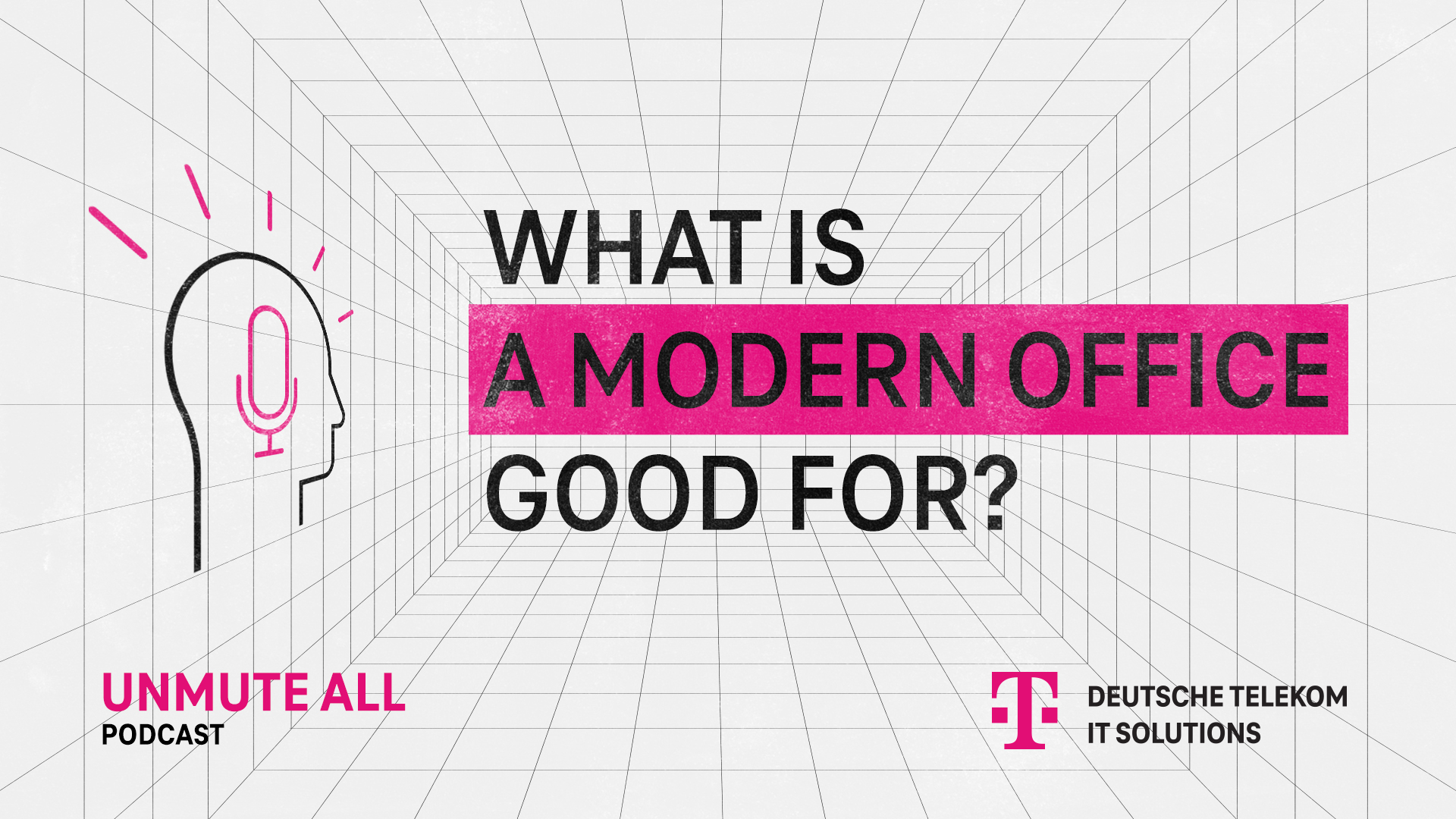What is a modern office good for? – Discussion about office spaces in modern work culture

Introduction
The conversation between Péter and Attila in the “Unmute All” podcast by Deutsche Telekom IT Solutions revolves around the concept of office spaces and their evolution because offices are an essential part of daily life in most large IT companies. This is a slight departure from our usual technology-focused discussions, but it may add an exciting new dimension to our content. They discuss various historical contexts, the impact of modern-day office dynamics, and the balance between home office and traditional office settings.
Historical evolution of offices
Péter introduces the topic by narrating the move to a new building shared with Magyar Telekom. This sparks a discussion about the core purpose and history of office spaces, from ancient Egypt and Mesopotamia to modern times. Attila emphasises the need for operational efficiency in large empires, which led to the creation of structured workspaces, and highlights the historical bureaucratic processes depicted in popular culture, such as in the “Asterix and Obelix” series.
Changing office dynamics
The podcast delves into various eras, including the functionalist architecture of the 20th century, the introduction of telecommuting by NASA’s Jack Nils, and the ergonomic improvements symbolised by the Herman Miller Aeron Chair. Attila and Péter reflect on how technological advancements, particularly in IT and communications, have transformed office environments and brought about the modern concept of the home office.
Impact of remote working
The major theme discussed is the shift toward remote working, especially during the COVID-19 pandemic. Péter shares statistics on office attendance before and during the pandemic, showing a significant decrease in physical office presence. Both hosts discuss the benefits and challenges of working from home, such as maintaining work-life balance, preserving interpersonal relationships with colleagues, and ensuring visibility and efficiency.
Technological and collaborative innovations
Attila emphasises the role of technology in facilitating remote work, mentioning tools such as VPNs, cloud services, and collaborative platforms like Microsoft Teams, Google Docs, and Webex Boards. They also explore the success and decline of co-working spaces, such as those run by WeWork, highlighting how the pandemic has reshaped these work setups.
The importance of physical interaction
Despite the growing trend of remote work, Péter and Attila agree on the importance of occasional physical presence in the office for fostering camaraderie and spontaneous interactions. They discuss how in-office days are crucial for brainstorming sessions, problem-solving, and building personal connections, which are often missed out in remote work settings.
Conclusion
The conversation concludes with an acknowledgment of the hybrid work model adopted by Deutsche Telekom IT Solutions, which blends the benefits of both home office and traditional office setups. Péter and Attila emphasise the continuous evolution of workspaces and the need to adapt to changing work dynamics for improved productivity and employee well-being.
The episode underscores that while remote work has become crucial, the collaborative and spontaneous interactions within an office space remain invaluable. The evolving work culture necessitates a balance that leverages technology to maintain efficiency while fostering human connections.
Listen to the episode here (Hungarian): https://www.deutschetelekomitsolutions.hu/podcasts/mire-jo-egy-modern-iroda/